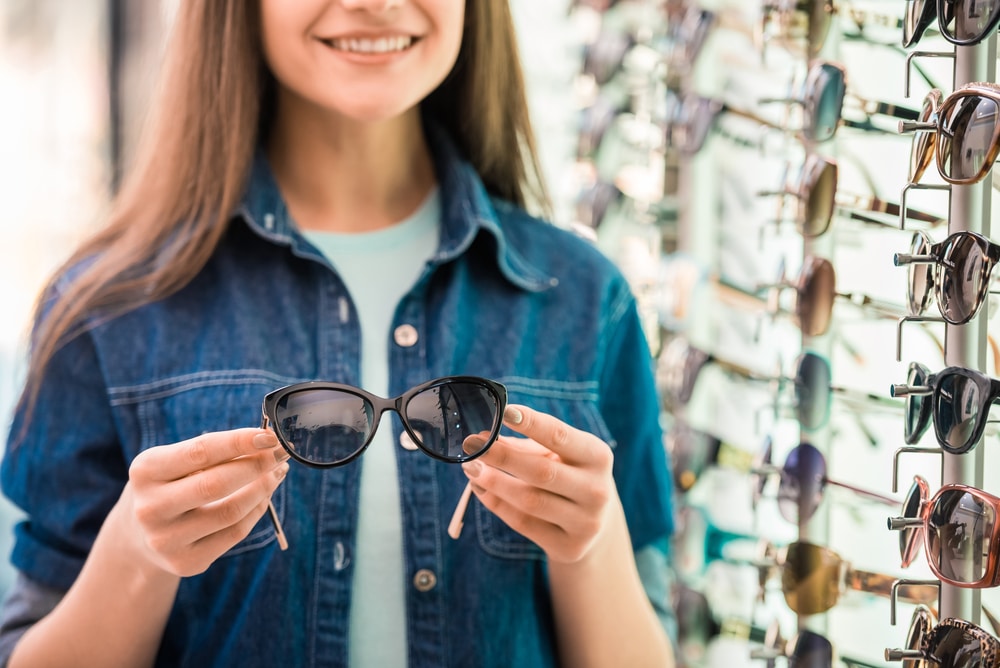Cataract surgery is a quick and painless procedure that restores people’s quality of vision. Since cataracts affect so many people, the technology used in this procedure has been perfected. Eye care specialists use numbing eye drops so that you don’t feel a thing during the procedure.
The most important step in having a cataract surgery procedure done is the aftercare. Specifically, wearing sunglasses outside or in direct light. At Michigan Eye Institute (MEI), we want to inform and help our patients understand the importance of wearing sunglasses after a cataract procedure. As much as we love to see you, we want you to see us less. To learn more about cataract surgery post-op care and recovery, click here.
Table of Contents
What To Expect After a Cataract Surgery Procedure
After a cataract surgery, your doctor will monitor you for about 15-30 mins, and then schedule your follow-up appointment. You’ll need someone to take you home after cataract surgery since your vision will be blurry for the next couple of days to weeks. Your doctor’s office should ensure that you have someone to pick you up, but if they don’t, make sure you have someone there when your procedure is complete. You may experience temporary side effects from the cataract surgery, such as:
- A gritty feeling in your eyes like there’s dirt stuck in them.
- Red or bloodshot eyes.
- Your eyes may become watery.
In your healing process after the cataract surgery procedure, make sure you don’t rub your eyes even if they feel uncomfortable. Rubbing your eyes can reopen the incisions and allow more bacteria to enter and spread. Along with not rubbing your eyes, your doctor will advise you to wear sunglasses when you’re outside to prevent damage to your vision.
Why Do I Need To Wear Sunglasses After Cataract Surgery?
You need to wear sunglasses after cataract surgery because as your eyes are healing, they will need extra protection from harmful UV rays. When a doctor completes a cataract surgery, the natural lens in your eye(s) is replaced with artificial lenses known as intraocular lenses (IOLS). Even though these lenses can give you the best vision you’ve ever had, they make your eyes more sensitive to the sun’s rays.
When you go outside after a cataract procedure, make sure you wear wide-brimmed sunglasses that cover the entirety of your eyes and vision pathways. Keep in mind that the sun is the hottest and the brightest in the middle of the day, around 10 am to 2 pm. During this time the risk of sun damage to your eyes significantly increases, so make sure you’re always protecting your eyes.

How Long Do I Need To Wear Sunglasses After Cataract Surgery?
Right after a cataract surgery, your eyes are hypersensitive to sunlight because they are dilated. Your eye doctor will dilate your eyes in a routine eye checkup, but in this case, sensitivity can last up to four weeks. Everyone should wear sunglasses when they’re outside to prolong their eye health and protect against UV radiation. However, the first month after cataract surgery is the most crucial time to wear sunglasses.
Do I Have to Wear Sunglasses Indoors After Cataract Surgery?
You typically don’t need to wear sunglasses indoors after cataract surgery unless you experience significant light sensitivity. However, in brightly lit environments or if your eyes feel uncomfortable, wearing lightly tinted or UV-blocking glasses indoors can help ease strain.
What Type of Sunglasses Work Best After Cataract Surgery?
Your eye doctor usually has protective eyewear for you to wear after your eyes get dilated, but you may benefit more from special post-cataract surgery sunglasses. Choosing frames that are designed to prevent light from entering the sides of your eyes will be the most effective type of sunglasses after a cataract procedure. Other features that you should look for when buying sunglasses after cataract surgery are:
Photochromatic Lenses
These lenses automatically darken when exposed to the UV rays from sunlight. These lenses can also help block out blue light, which may cause discomfort to your eyes as well.
Anti-Reflective Lenses
Reflections can shine brightly in your eyes, which may be painful or uncomfortable if your eyes are sensitive to light. Anti-reflective sunglasses filter out extra light and dim reflections.
Ultraviolet (UV) Protection
Most sunglasses should have a level of UV protection on them. Look for the labels on sunglasses that say “99-100% UV/UVA/UVB Protection” or “100% Protection Against UV 400” to ensure you’re getting the best possible protection from ultraviolet rays.
Polarized Lenses
Similar to photochromatic lenses, these lenses change in color to reduce the glare projected off surfaces like water and pavement. If you spend a lot of time driving, these types of sunglasses may be best for you.
Wraparound Frames
Wraparound frames are different from all other types of sunglasses because they have lenses all around the frame, making it so that no light can enter from the sides, bottom, or top.
You can find sunglasses to help with your eyes after cataract surgery at virtually any department store or you can find them online. Some of the top brands to look for are:
- Oakley Holbrook Sunglasses
- Classic Ray-Ban Aviator or Ray-Ban Black Polarized Sunglasses
- Costa Spearo Polarized Sunglasses
- Optix 55 HD day and night driving glasses
- LensCovers sunglasses
- Yodo sunglasses
Schedule an Eye Appointment at Michigan Eye Institute
If you recently had a cataract procedure and have questions about post-op care, call the eye care specialists at Michigan Eye Institute. Our team of professionals can assist you with any information you need and can recommend an appointment if needed. Call today if you have any questions about why it’s important to wear sunglasses after a cataract surgery procedure—MEI is here to help.
Schedule Your AppointmentComments are closed.



